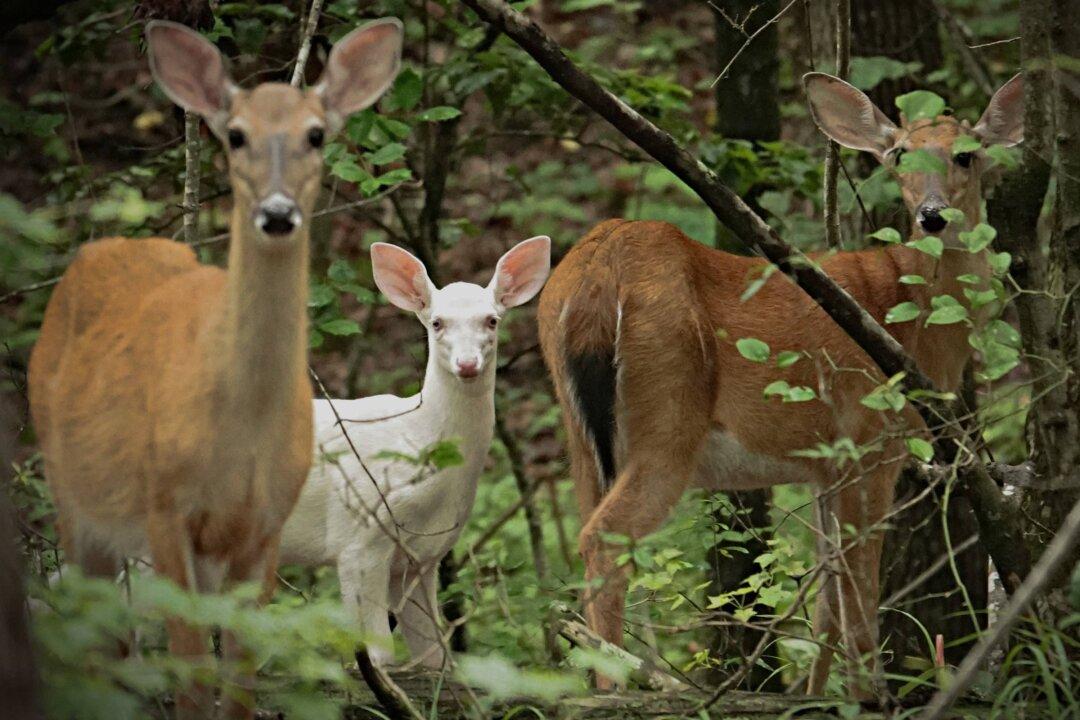A trio of not-so-ferocious-looking furry faces stare back at the cameraman peering inside their den.
Toothless mouths breathe silent roars as the lens probes deeper inside to take footage of the three newborn mountain lion kittens. They are all females.






